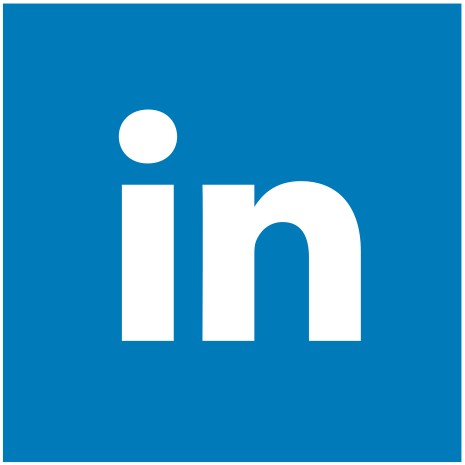Monk Week: Harnessing Solitude for Intentional Living
By Stefan Auvache

Few things irk me more than waiting in a long line.
Standing in line feels like life draining away. Maybe I’m impatient. Maybe I just really value my time. Either way, I avoid lines at all costs.
When I was in college, my disdain for lines accidentally changed my life.
Every semester, on the last day of finals week, a quarter-mile-long line would stretch from the testing center to the cafeteria. Students would stand for hours, nervously waiting to take their exams.
I wanted no part of it. To avoid ever having to wait in that monster of a line, I developed a simple strategy: take every exam on the first day it was available.
My first finals week started on a Monday at 7 a.m., when I walked into the testing center for my first test. Ninety minutes later, I turned it in, walked out the back door, and circled right back to the entrance for the next one. I repeated this process for all of my finals.
By 3 p.m., I’d finished every exam.
That evening, reality hit me: I wasn’t flying home for the holidays until Friday, my friends were busy studying and didn’t want to hang out, and I had nothing—no homework, no job, no car—to occupy me for the next four days.
So I wandered. I read outside in the sun. I caught up on sleep. I was alone with my thoughts, and it felt great.
I had accidentally become a 21st-century collegiate monk.
My First Monk Week
I refer to this time as my first Monk Week: a block of time (not necessarily a week) set aside for solitude, reflection, and recalibration.
During those quiet days alone, I realized the path ahead was hazy. I had energy and ambition without direction, and that needed to change. I grabbed my laptop and a notebook and headed to the library for three days of reflection and planning.
My soul-searching started with binge reading. The list included titles like How to Win Friends and Influence People by Dale Carnegie, Focal Point by Brian Tracy, Influence by Robert Cialdini, The Richest Man in Babylon by George Clason, The 4-Hour Workweek by Timothy Ferriss, and Freakonomics by Steven Levitt and Stephen Dubner.
After reading other people’s ideas about life, efficiency, and success, I started asking myself some big questions:
- What did I want life to look like after graduation?
- What did I want most in a career?
- What did I want most out of life?
The deeper the questions became, the harder they were to answer. But that’s a good thing.
If you want to change the direction or quality of your life, you need to ask questions you don’t have the answers to, then work to find those answers.
Science-Backed Benefits of Intentional Solitude
I’m far from the first person to discover the power of deliberate solitude.
Psychiatrist and psychotherapist Carl Jung would retreat to a stone house he called “The Tower” for months at a time, writing every morning and walking in the countryside in the afternoons.
Bill Gates takes semiannual “Think Weeks,” isolating himself with nothing but books, notes, and the biggest questions on his mind.
Novelist Haruki Murakami spends long stretches in solitude, following strict daily routines—writing before dawn, running 10 miles—to avoid interruptions and protect his creative focus.
The benefits of intentional solitude are backed by modern research.
Reduced Stress & Anxiety
15 minutes of solitude can significantly reduce high-arousal emotions like anxiety.
Increased Satisfaction & Autonomy
In a three-week study of adults over 35, people felt less stressed and more in control on days when they had taken time to be alone. Research in Scientific Reports shows that intentional solitude can boost life satisfaction and give you a stronger sense of autonomy.
Enhanced Creativity & Insight
Long stretches of voluntary solitude foster self-awareness, deep reflection, and creative breakthroughs. A study during France’s strict COVID-19 lockdown showed everyday creativity surged—especially for those who were less creative beforehand.
Emotional Reset Through Deactivation
Solitude has a “deactivation effect” that can help reduce emotional response so your mind can reset and think clearly again.
Decreased stress, enhanced satisfaction and self-control, deeper clarity, insight, and creativity—these are all benefits of intentional, periodic solitude.
How to Use Solitude to Act More Intentionally
By the end of my first monk week, I had started to find answers to my questions.
In my career, I wanted freedom and autonomy. No 80-hour office schedule. No corporate ladders. No managing other people’s lives. I wanted meaningful work that paid well and allowed me to spend time doing the things I love with the people I love.
That’s the life I’ve pursued ever since.
That week in the library was a calibration. Regularly taking time to stop and reflect has helped me live life with more intention. Most of the major life decisions I’ve made have been shaped by clarity and insight found during quiet times of reflection.
You don’t have to abandon all of your responsibilities to experience this kind of peace. Schedule out time—even just a few hours—of quiet reflection to ask yourself difficult questions and earnestly seek answers.
A “Monk Week” for me isn’t a set period of time. It can be as simple as an early Saturday morning with a few hours of reading and writing, or as extensive as a summer of solitude in the countryside.
Regardless of specifics, intentional solitude can clear your mind in ways daily life never will, and that clarity will help you to make better plans and take more intentional action.
Take time for some solitude, be it a vacation, a free weekend, or an early morning. Disconnect. Eliminate distractions. Find a quiet place to reflect, write down questions you have about your life, and think deeply about them.
Your mind can do incredible things when you give it space. Let it help you live with more intention.
One Email, One Idea, Every Week
Join Food for Thought—a weekly email about the iterative approach to building a fulfilling life.
Articles

AI Strategies to Safeguard Personal Development
AI can make you far more productive, but it can also cause valuable skills to atrophy. By focusing on understanding, reinvesting time saved into deeper work, and collaborating with AI intelligently, you can improve skills while taking full advantage of AI's power.

Measure What Is in Your Control
Stephen King has written dozens of bestsellers, sold over 350 million books, and built a net worth north of $500 million. While impressive, these are metrics he pays little attention to. As an author, there is only one metric that King pays attention to—words written per day.

The Ninety-Ninety Rule and Overcoming Unplanned Work
Every project takes longer than expected. Unplanned work derails progress, but it doesn't have to. Gain visibility, double your timelines, and triage like a pro to stay productive and in control.

Agile Development: A Pattern for Improvement
Stripped of business and coding jargon, Agile Development is an incredible framework for self-improvement. Make a plan to get a little closer to where you want to be. Act on that plan. Measure the outcome of your actions. Then, use what you have learned to adjust your vision for the future and plan your next move.



